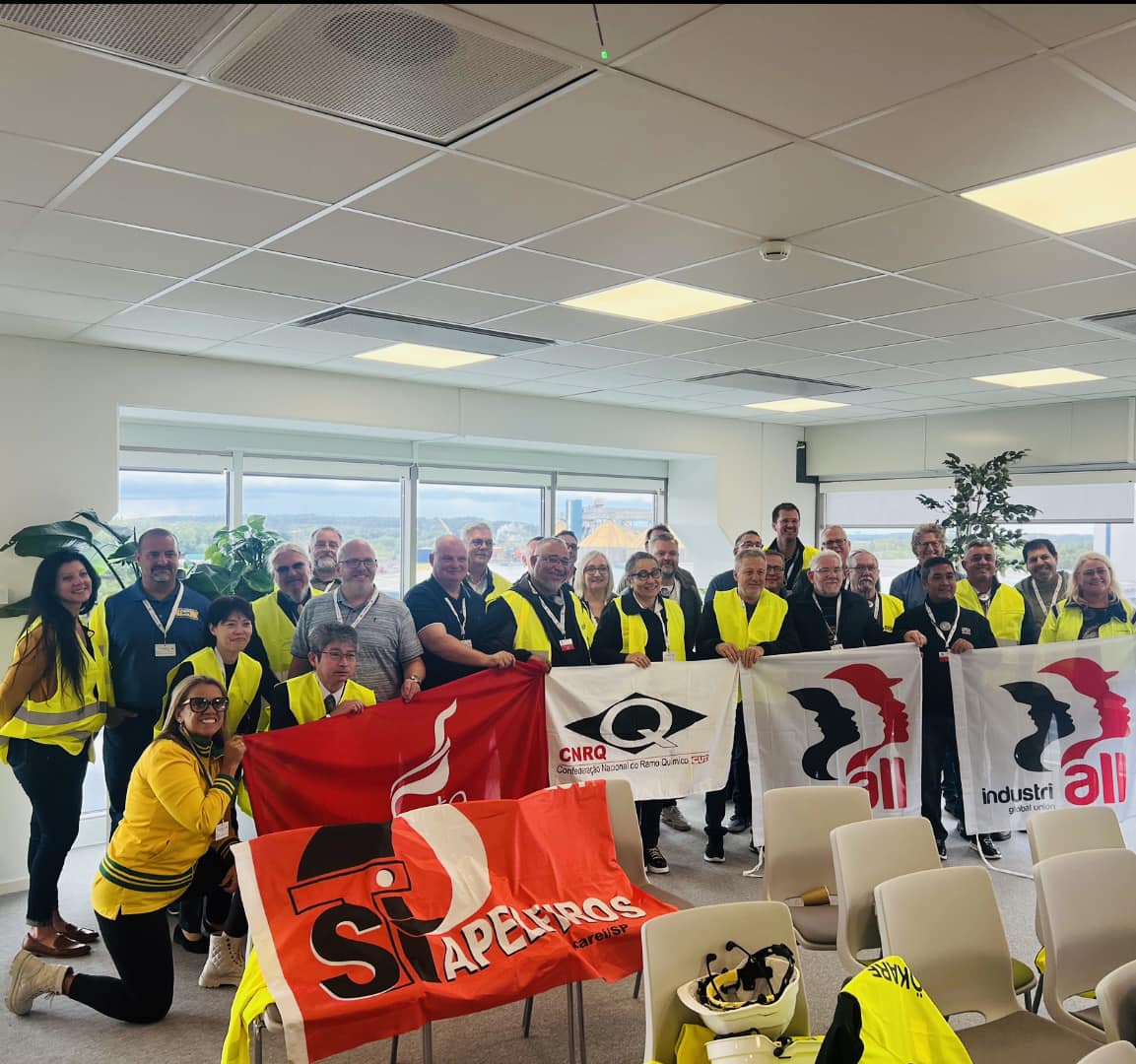28 September, 2023Discussions on health and safety took centre stage last week, when unions from around the world met in Stockholm, Sweden, for the first in-person meeting of the IndustriALL Global Union work group for the pulp and paper sector since 2019.
Swedish union Pappers hosted meeting, which brought together unionists from Indonesia, UK, Brazil, Canada, France, USA, Belgium, Australia, Uruguay, Germany, Japan, Austria and Finland.
Starting off the meeting, participants acknowledged the important work done by retiring co-chair Leeann Foster, USW, thanking her for her commitment, and elected Breahn Quigley Knackert, USW, as the new co-chair. Pappers vice president Mikael Lilja is the other co-chair.
The Covid pandemic effectively halted physical meetings for a few years, and its effects were discussed in the meeting.
Brazil experienced horrible working conditions during the pandemic, but all pulp and paper plants remained open. In Japan, the industry is recovering to levels before the pandemic. In Sweden, the pandemic turned out to be very profitable for the pulp and paper industry, as sought-after products like tissue and toilet paper are produced in the country.
Reporting from Indonesia, Rahmat Hendra from FSP2KI, said that although the pandemic had virtually no impact on Indonesia’s pulp and paper industry, employers took advantage and delayed salary increases. Unions in the country are also fighting against the much-debated Omnibus law, which, among other things eliminates the sectoral minimum wage, allows an excessive use of outsourcing is allowed and reduces the nominal severance pay.

German union IGBCE joined several previous speakers and highlighted the shortage and need for skilled workers, a problem that will only become increasingly important for the industry.
Denise Campbell-Burns from CFMEU Manufacturing, Australia, told participants that the union is focused on maintaining workers’ rights and conditions.
“But we see emerging issues on training, and health and safety. As businesses aim to get leaner, health and safety is compromised with. In Australia, our sector has not had a fatality since 2010, but we fear a perfect storm.”
Reporting on the industry in the USA, Luis Mendoza, USW international vice president, stressed the point that pulp and paper is a dangerous sector and health and safety remain a main priority.
"We can never forget about the hazards. Our members and their families rely on us as unions for that."
Delegates from UK’s Unite the Union reiterated the importance and focus of health and safety in the sector, referring to the campaign a few years ago to promote health and safety, emphasizing workers’ rights to participate in safety management on the job.
The 3R campaign centred around three core rights:
- Right to know about hazards at work
- Right to refuse, or to shut down, unsafe work
- Right to participate fully in health and safety decision-making
Unions shared challenges and successes in ensuring space for women in the pulp and paper sector.
Canadian union UNIFOR spoke of agreements reached in the country where pregnant women could leave work if deemed dangerous for the baby. There are similar agreements for when breastfeeding, where women can leave earlier and still receive pay.
Under Australia’s new labour government, national laws now include ten days of family violence leave. Unions have been able to implement clauses into collective agreements where anyone suffering from family violence is entitled to leave without any questions asked and no loss of payment.
Given that women make up less than ten per cent of workforce in the industry, USW is trying to increase that number. The union is also making a push at the bargaining table to include language on issues of domestic violence in collective agreements.
Breahn Quigley Knackert said:
“The work on health and safety provisions for women workers is important and we are making headway. But we must also ensure that promises are realized and are not merely lip service.”
Participants agreed that more women need to be organized and that IndustriALL has an important role to play.
Håkan Juholt, former Prime Minister in Sweden and currently Sweden’s ambassador to South Africa, addressed the meeting, praising the important work of unions.
“Countries where unions are strong and able to change conditions are good countries to live in.
A visit to Swedish paper and packaging company Billerud’s mill in Skärblacka provided participants with an opportunity to learn more about labour relations in Sweden. Full-time union representative and Billerud board member Marie Olsén explained the Swedish model of union-employer negotiations on salaries and working conditions.

At the mill in Skärblacka
Rounding off the days in Stockholm, the sector co-chairs, together with Swedish affiliates represented at hygiene and health company Essity, Pappers, IF Metall and Unionen, met with company management to assess the work under the global framework agreement. The agreement was signed in 2018 and safeguards the rights of workers across Essity’s global supply chain.
Said IndustriALL sector director Tom Grinter:
“Bringing everyone together for a long-awaited meeting in person has provided the work group with energy, resilience and determination to keep fighting for a safe and sustainable pulp and paper industry. The meetings in Sweden reaffirms our commitment make sure that we are at the table when our issues are discussed to fight for our members.”









